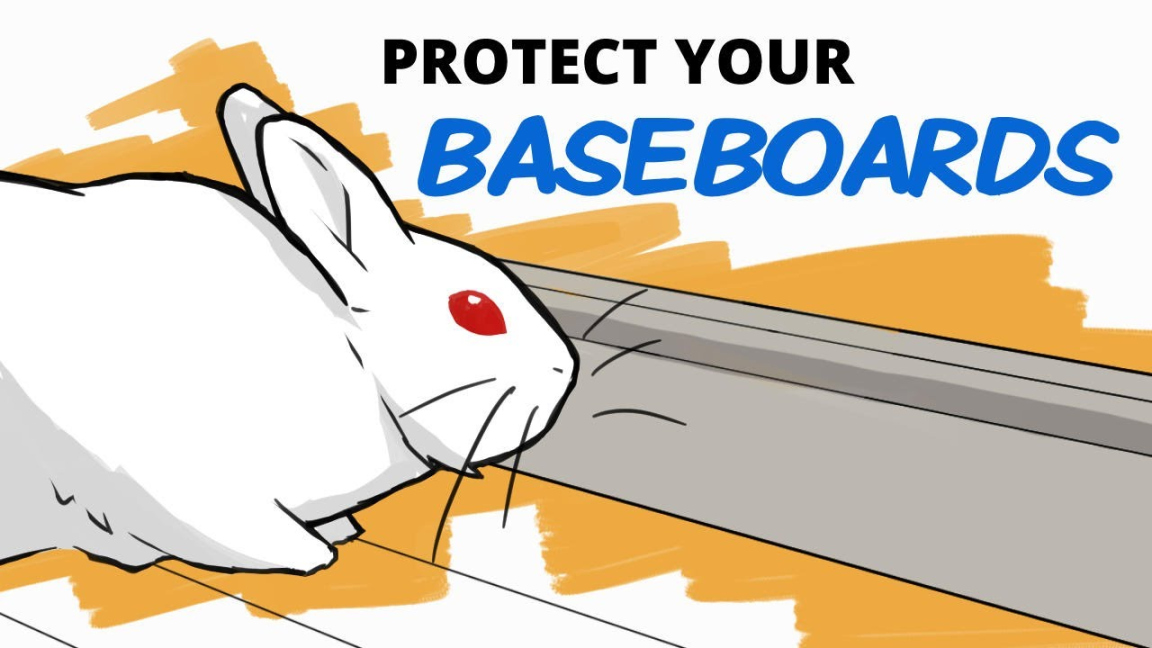How to Get Your Rabbit to Stop Chewing
Rabbits are known for their love of chewing. However, excessive chewing can be destructive and potentially harmful to your pet rabbit. Whether it’s gnawing on furniture, wires, or even your favorite pair of shoes, it’s important to teach your rabbit proper chewing behavior. In this article, we will discuss effective strategies to get your rabbit to stop chewing on things they shouldn’t.

Understanding the Behavior
Before addressing the chewing problem, it’s crucial to understand why rabbits chew in the first place. Chewing is a natural instinct for rabbits as it helps them keep their teeth healthy and worn down. It is also a way for them to explore their environment and alleviate boredom. However, rabbits can quickly turn their chewing habits towards things that are not safe or appropriate.
1. Provide Appropriate Chew Toys
One of the most effective ways to redirect your rabbit’s chewing behavior is to provide them with appropriate chew toys. These toys are designed specifically for rabbits and are made of safe and rabbit-friendly materials such as untreated wood, hay, or tightly woven grass. By offering a variety of chew toys, you can keep your rabbit engaged and satisfied with an alternative chewing outlet.
2. Bunny-Proof Your Home
Another essential step in preventing destructive chewing is to bunny-proof your home. Rabbits are naturally curious creatures, and they will explore every nook and cranny if given the chance. Start by removing any valuable or dangerous items from their reach. Use furniture protectors, block access to wires, and secure carpets to prevent your rabbit from causing damage or getting injured.
3. Encourage Regular Exercise
Rabbits need plenty of exercise to stay healthy and mentally stimulated. Lack of physical activity can lead to boredom, which often results in excessive chewing. Ensure that your rabbit has enough space to run, jump, and explore by providing a rabbit-proofed area or using a large playpen. Additionally, daily supervised playtime outside of their enclosure can greatly reduce their desire to chew on inappropriate items.
4. Provide Mental Stimulation
Boredom is a common trigger for destructive chewing in rabbits. To prevent this, make sure your rabbit has enough mental stimulation. Offer puzzle toys, hide treats, or use tunnels and mazes to keep them entertained. Providing a variety of activities will keep your rabbit engaged and less likely to resort to destructive chewing.
5. Train and Reward
Training your rabbit to understand what is acceptable to chew and what is not can be highly effective in curbing their chewing behavior. Whenever you catch your rabbit chewing on an appropriate item, praise them and offer a treat. Use positive reinforcement to create a link between the desired behavior and the reward. Conversely, when you catch them chewing on something they shouldn’t redirect their attention to an appropriate chew toy, and reward them when they engage with it.
Frequently Asked Questions
1. Why does my rabbit chew on electrical wires?
Rabbits are naturally attracted to electrical wires due to their texture and the electrical currents running through them. Chewing on wires can be extremely dangerous and can result in electrocution or fire hazards. Ensure all wires are hidden or protected to prevent your rabbit from accessing them.
2. How can I stop my rabbit from chewing on furniture?
To prevent your rabbit from chewing on furniture, provide them with a variety of appropriate chew toys and discourage them from accessing areas with valuable or vulnerable furniture. You can also use deterrent sprays or cover furniture corners with aluminum foil to discourage chewing.
3. My rabbit keeps chewing on its cage bars. What should I do?
Chewing on cage bars is often a sign of boredom or frustration. Ensure your rabbit has enough mental stimulation by providing toys, tunnels, and regular exercise. You can also consider upgrading to a bigger enclosure to give your rabbit more space to explore.
4. Are there any chew toys I should avoid giving to my rabbit?
Avoid giving your rabbit chew toys made of plastic, foam, or materials that can splinter easily, as these may pose a choking hazard or cause digestive issues. Also, steer clear of items treated with chemicals or toxic substances.
In conclusion, teaching your rabbit appropriate chewing behavior is crucial for their safety and the well-being of your home. By providing the right chew toys, bunny-proofing your living space, ensuring regular exercise, and offering mental stimulation, you can help redirect your rabbit’s chewing habits. Remember to use positive reinforcement when training and always monitor your rabbit’s chewing activities to ensure their safety.
Related Articles…
Copyright Notice:
All images featured on this site are sourced from the internet, copyrights belong to respective owners. Should you own any image and require it to be removed, please contact us.